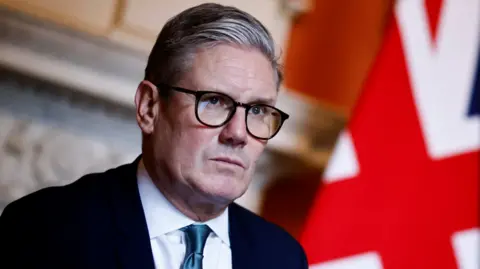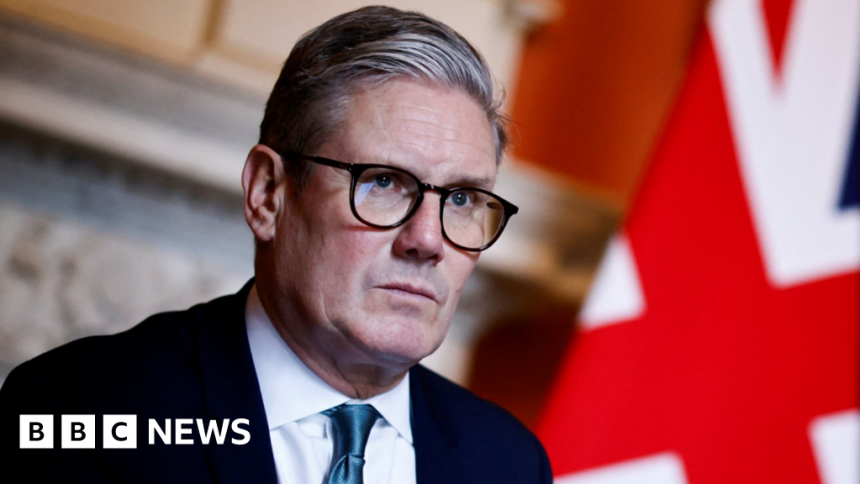Starmer seeks to turn promises into reality
 Reuters
ReutersWhen there is a change of government, there is a dizzying hokey cokey of changing job titles.
Even if the winner of the election was not wildly surprising and even for those of us who spend our professional lives observing and scrutinising these folk, it can still catch you out.
Suddenly, the person answering to “prime minister” is a different bloke from earlier in the month.
The leader of the opposition, Rishi Sunak, continues to oppose the prime minister, but is no longer the prime minister.
This is a new government attempting to leverage three set-piece moments in its first fortnight to cement its place in office in the mind’s eye of the electorate – and shake off that novelty as a team of people who were so long in opposition and are now running the place.
There was the Nato Summit in Washington last week, there is the European Political Community gathering at Blenheim Palace in Oxfordshire on Thursday and then there is the King’s Speech today.
They are all events where ceremony and vivid pictures varnish the more prosaic political promises.
Pretty useful for any government at any time – the staging and choreography of office denied to parties of opposition.
And certainly useful to a UK Labour government rather keen to move on from a day of headlines about the Welsh Labour government imploding.
In purely numerical terms, the number of planned new laws set out at today’s State Opening of Parliament is on the high side – and higher, Labour say, than Tony Blair managed at his equivalent moment in 1997.
It is worth saying that government plans and government achievements are not the same thing.
Ideas for new laws can get bogged down, side-tracked, amended, and a government can run out of time or enthusiasm to pursue them.
And stuff happens, stuff always happens, that seizes the agenda, the attention, the in-tray of ministers.
But remember this is a government with a mountainous majority.
Rebellions and noises off would have to be mighty loud to cause Sir Keir Starmer real problems and while there is no doubt that in time there will be an awkward squad on his benches, most are likely to be loyal before they (potentially) get grumpy.
For the prime minister today, the aim is to project a sense of energy and urgency, but not surprises.
He will try to convince you he is turning his campaign promises into reality, or at least beginning the process of doing so.
And he wants to give off the impression the party has been working hard in opposition to be ready for government – that the scale of these ideas make it obvious they have not been cobbled together in the last fortnight.
Labour want to make the most of any honeymoon period, which they know will probably be short-lived.
They successfully harnessed that most powerful of words – “change” – in the election campaign.
Now comes the next difficult bit: actually trying to deliver it.






